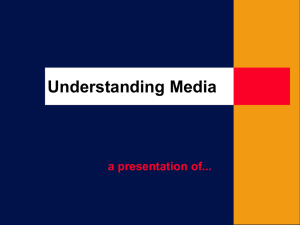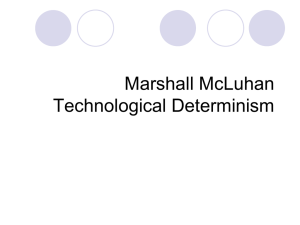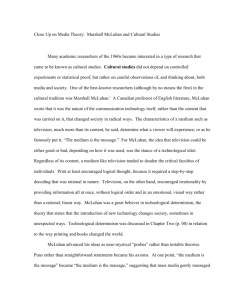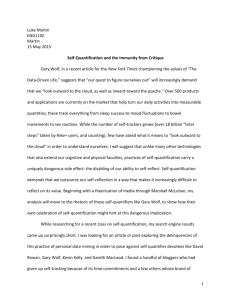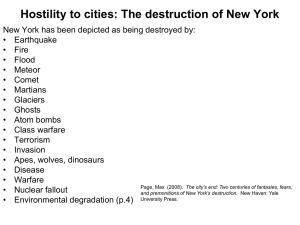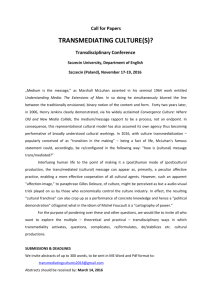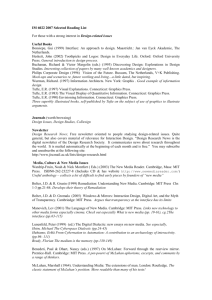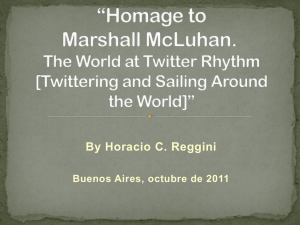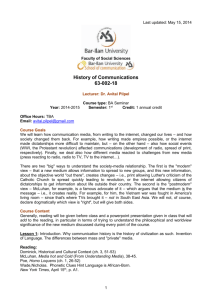Marshall McLuhan
advertisement
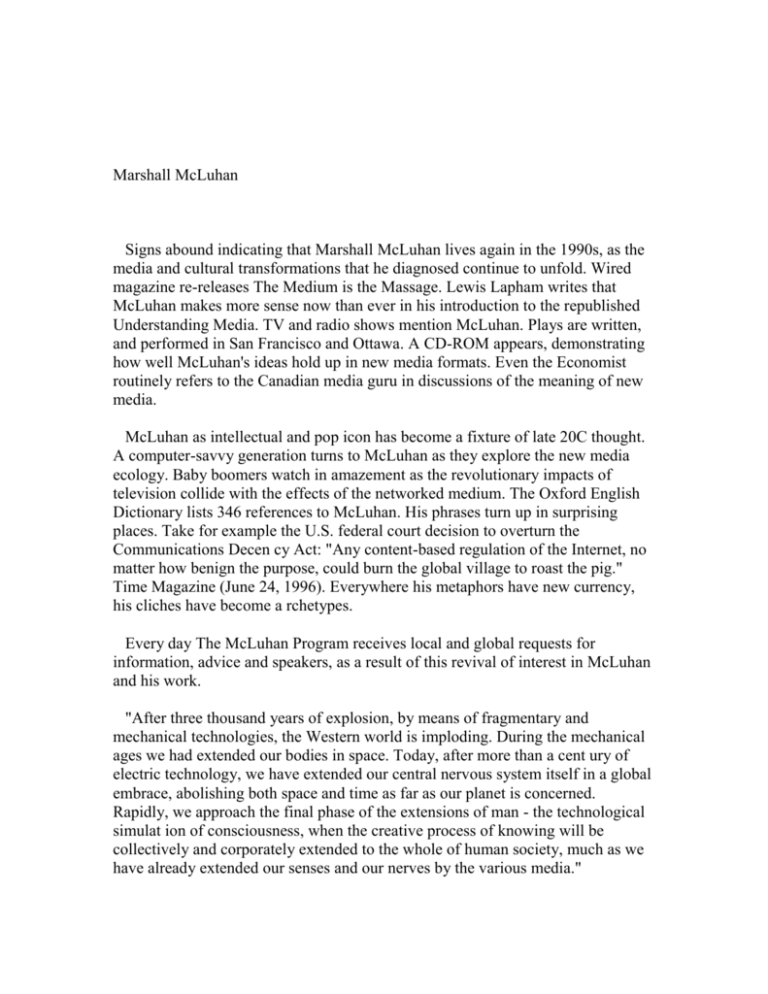
Marshall McLuhan Signs abound indicating that Marshall McLuhan lives again in the 1990s, as the media and cultural transformations that he diagnosed continue to unfold. Wired magazine re-releases The Medium is the Massage. Lewis Lapham writes that McLuhan makes more sense now than ever in his introduction to the republished Understanding Media. TV and radio shows mention McLuhan. Plays are written, and performed in San Francisco and Ottawa. A CD-ROM appears, demonstrating how well McLuhan's ideas hold up in new media formats. Even the Economist routinely refers to the Canadian media guru in discussions of the meaning of new media. McLuhan as intellectual and pop icon has become a fixture of late 20C thought. A computer-savvy generation turns to McLuhan as they explore the new media ecology. Baby boomers watch in amazement as the revolutionary impacts of television collide with the effects of the networked medium. The Oxford English Dictionary lists 346 references to McLuhan. His phrases turn up in surprising places. Take for example the U.S. federal court decision to overturn the Communications Decen cy Act: "Any content-based regulation of the Internet, no matter how benign the purpose, could burn the global village to roast the pig." Time Magazine (June 24, 1996). Everywhere his metaphors have new currency, his cliches have become a rchetypes. Every day The McLuhan Program receives local and global requests for information, advice and speakers, as a result of this revival of interest in McLuhan and his work. "After three thousand years of explosion, by means of fragmentary and mechanical technologies, the Western world is imploding. During the mechanical ages we had extended our bodies in space. Today, after more than a cent ury of electric technology, we have extended our central nervous system itself in a global embrace, abolishing both space and time as far as our planet is concerned. Rapidly, we approach the final phase of the extensions of man - the technological simulat ion of consciousness, when the creative process of knowing will be collectively and corporately extended to the whole of human society, much as we have already extended our senses and our nerves by the various media." Marshall McLuhan top of the page Introduction to McLuhan | Brief Biography | Images and Sounds Index of Content | Welcome Page | About this Interface Marshall McLuhan (1911-1980) ----------------------------------------------------------------------Marshall McLuhan, once referred to as the "Oracle of the Electronic Age", is perhaps best know for his phrase turned into book title, The Medium is the Massage. As director of the Center for Culture and Technology at the University of Toronto, McLuhan rose to fame as a "guru" of media culture. According to Rogers (1994) although McLuhan served on the faculty at Toronto with Harold Innis, and acknowledged Innis's contribution to his theory, the two had little direct contact (p. 488). According to Christians (1989), McLuhan replaced "Innis' more somber historical and sociological themes" with a psychological and doxological approach (p. 238). McLuhan's contribution to the field of communication study was widely acclaimed by popular standards while simultaneously being dismissed by those in academic circles. According to Rogers, "During his lifetime McLuhan did more than any other individual to interest the general public in communication study" (p. 489). Gary Wolf, writing in Wired [17] magazine, painted a portrait of McLuhan as "a critic and an academic rebel", prone to incredible pronouncements and humorous quips. McLuhan was a master of aphorisms, and like Heidegger, he loved wordplay. The title of his best-selling book The Medium is the Massage is no exception. Maybe he was making a statement about the way that the media massage or pummel us, or perhaps he was making a pun on the new "mass-age." In any case the underlying notion is that the message is greatly impacted by the delivery system. Some would understand this position to be the ultimate in media determinism. If the content is obliterated by the channel, "what" we say is of little importance-only "how" we chose to deliver it. McLuhan's belief in technological determinism is obvious by his phrase, "we shape our tools and they in turn shape us" (quoted in Griffin, 1991, p. 294). McLuhan believe that the print revolution begun by Gutenberg was the forerunner of the industrial revolution. One unforeseen consequence of print was the fragmentation of society. McLuhan argued that readers would now read in private, and so be alienated from others. "Printing, a ditto device, confirmed and extended the new visual stress. It created the portable book, which men could read in privacy and in isolation from others" (McLuhan, 1967, p. 50). Interestingly, McLuhan saw electronic media as a return to collective ways of perceiving the world. His "global village" theory posited the ability of electronic media to unify and retribalize the human race. What McLuhan did not live to see, but perhaps foresaw, was the merging of text and electronic mass media in this new media called the Internet. McLuhan is also well known for his division of media into hot and cool categories. Hot media are low in audience participation due to their high resolution or definition. Cool media are high in audience participation due to their low definition (the receiver must fill in the missing information). One can make an argument that the Web results by combining two cool media into a new synthesized, multimediated experience. If print is hot and linear, and electronic broadcast media are cool and interactive, hypermedia on the Web is "freezing" and 3-D. McLuhan's philosophy "was influenced by the work of the Catholic philosopher Pierre Teilhard de Chardin, who believed that the use of electricity extends the central nervous system" (Wolf, 1996, p. 125). According to Wolf, "McLuhan's mysticism sometimes led him to hope, as had Teilhard, that electronic civilization would prove a spiritual leap forward and put humankind in closer contact with God" (p. 125). Wolf went on to write that McLuhan later reversed himself, calling the electronic universe, "an unholy impostor,...'a blatant manifestation of the Anti-Christ'" (p. 125). -----------------------------------------------------------------------BACK | HOME | FORWARD More McLuhan http://www.magic.ca/mcl-prj/ http://www.mcluhan.ca/mcluhan/ Conclusions ----------------------------------------------------------------------Joli Jensen (1990) [29] argued that, "it is dangerously naive to assume that we will be saved by art, by information, by education, by technology. The implicit hopes of some media critics for redemptive symbolic forms, purveyed by some ideal communication system, reveal a chronic waiting for salvation" (p. 194). As Postman (1995) asserted, there have been and will be gods that fail us. Utopia does not exist on earth or in cyberspace. If it is true that vigilance is the price of freedom, then vigilance is needed more than ever in this free-for-all we call the Web. The need for vigilance against materialism, commercialism, and decadence may be easy to comprehend. But let us also be vigilant for the more subtle and self-inflicted hurt that we do to our humanity when we participate in virtual community. Langdon Winner, writing on the Web, observed; As the twentieth century draws to a close, it is evident that, for better or worse, the future of computing and the future of human relations-indeed, of human being itself-are now thoroughly intertwined. We need to seek alternatives, social policies that might undo the dreary legacy of modernism: pervasive systems of one-way communication, preemption of democratic social choice corporate manipulation, and the presentation of sweeping changes in living conditions as something justified by a univocal, irresistible "progress." [30] According to Winner, the reality of technological progress has too often been a scenario where the innovation has dictated change for society. Those who had the power to introduce a new technology, also had the power to create a consumer class to use the technology, "with new practices, relationships, and identities supplanting the old." Later he wrote, "those who had the wherewithal to implement new technologies often molded society to match the needs of emerging technologies and organizations." In a technological world that values individualism and material satisfaction, vigilance must be given to ensure the place of community and sacrifice. In a world where anything is possible, we cannot accept the conclusion that everything is permissible. Moral choices cannot be made by simply observing the state of our surroundings. Or to put it in terms familiar to readers of the 18th century philosopher David Hume, no "ought" from an "is." [31] You may recall that in the preface to this paper the author argued for writing in hypertext "because it is possible." Now that it has come full circle, one can see how that may have been the least valid reason of all. -----------------------------------------------------------------------BACK | HOME | FORWARD
